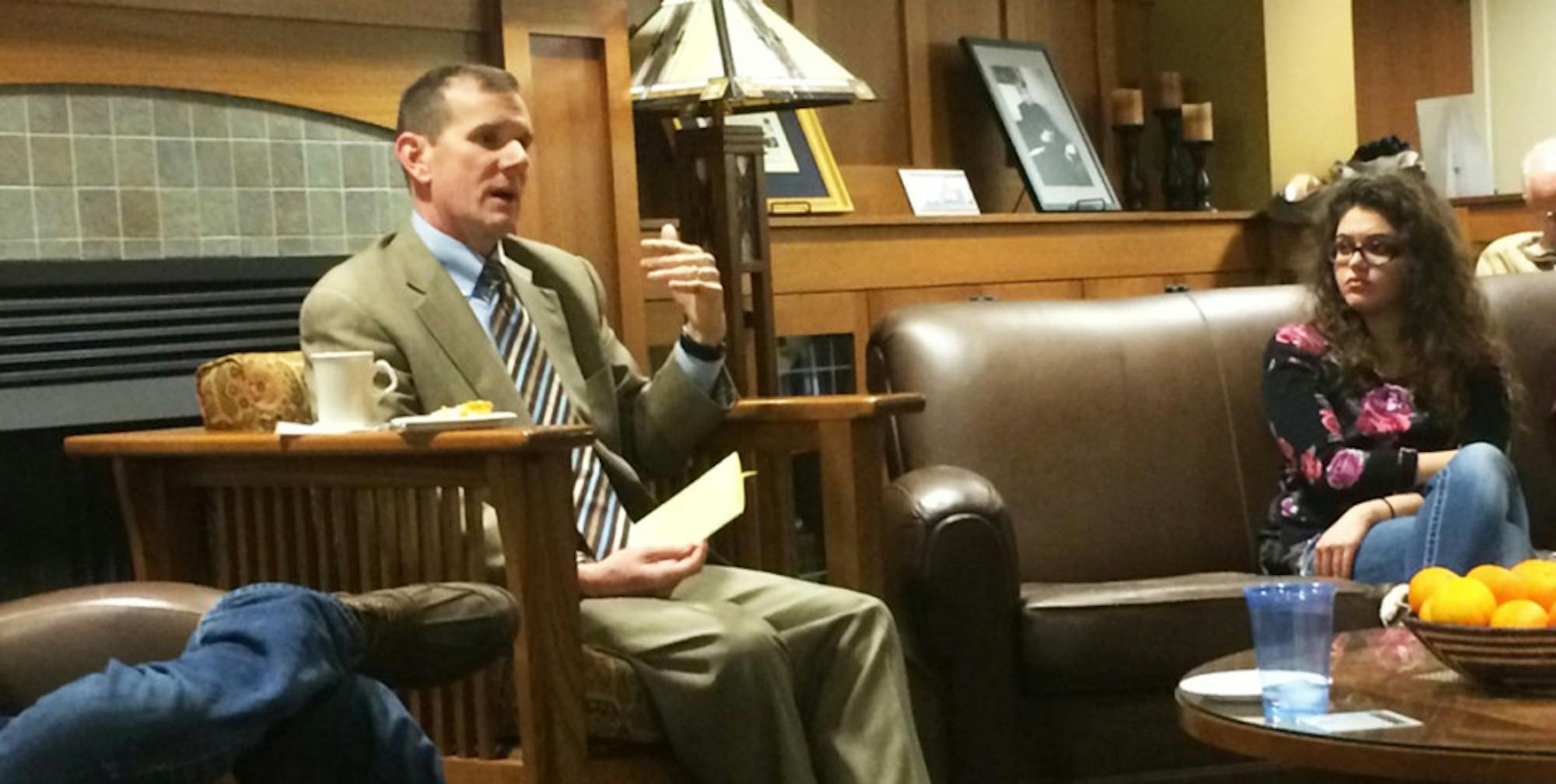For believers in the power and need for collective bargaining, Indiana State Sen. John Broden says now is an incredibly frustrating and troubling time.
“In the last five to six years, a lot of our labor laws have fallen to the wayside. If you believe that labor organizations have the right to collective bargaining, Indiana has certainly taken a number of steps back,” Broden said.
Tuesday night, the Higgins Labor Studies Program Friends and Alumni Network sponsored a discussion with Broden, who graduated from the University in 1987, in which he focused on fighting for laborers rights in the Indiana State Senate.
“I’ve loved working in the General Assembly, but it’s definitely gotten more challenging. I’m a Democrat, and we’ve always been the minority but we’re even more severely the minority now,” Broden said. “Indiana has traditionally sort of been a swing state, it’s not monolithically Republican. But right now, at the state legislative level, it is.”
Though 32 members of the Indiana General Assembly were Republicans when Broaden was sworn in, there are currently 40 Republicans, making up a more significant majority.
“The 32 members that are Republicans were much more moderate strain when I was sworn in than the 40 members that are there now. Now, you know, we’re seeing more and more conservative members beating those more moderate members in elections, and we’re losing that middle, more moderate group,” he said.
Broden said his most difficult fight came over the common construction wage, which the Republicans wanted to repeal.
“It appeared that logic was thrown out the window. The only people who were for this were non-union contractors, who did very little public work, and then there were very right wing people that were just ideologically opposed to this,” he said. “... and that’s what was so frustrating about this, because we then ended up repealing the common construction wage.”
Broden talked about his growing frustration with the Republican majority in the General Assembly, particularly in regards to workers rights.
“Running against teachers unions became very popular for Republicans. They were calling them out for protecting bad teachers, and then those bills passed, and then you know, Right to Work was next to go,” he said.
Regarding Indiana’s recent status a Right to Work state, Broden said he was discontent with the way that legislation had been passed. In Right to Work states, labor unions are allowed, but workers in unionized professions cannot be forced to join unions.
“Indiana is now what they call a Right to Work state. For a while, we avoided kind of taking up this fight, but you know you look around and there were a lot of members who wanted that. Recently, though, we’ve lost some members who were against Right to Work, so they were able to get that bill passed,” Broden said.
Looking to the future, Broden said he is working on policies regarding the minimum wage in Indiana.
“It’s extremely frustrating if you believe in labor rights, because things like minimum wage right now are being challenged and that’s something that we’re really fighting for but you know, we just can’t get it passed,” he said.
Broden said his passion for politics and labor rights came primarily from his time at Notre Dame.
“I really enjoyed my curriculum at Notre Dame, it confirmed everything I thought about politics, which I was interested from the very early days,” he said. “Two of my favorite courses were in labor studies, and there’s labor and labor history but then more importantly there’s labor economics, which sparked an interest in me that remains today.”
State senator examines Indiana labor policy
State senator and Notre Dame alumnus John Broden discusses the variety of issues the Indiana
legislature faces regarding minimum wage, right to work status and other labor policies.









